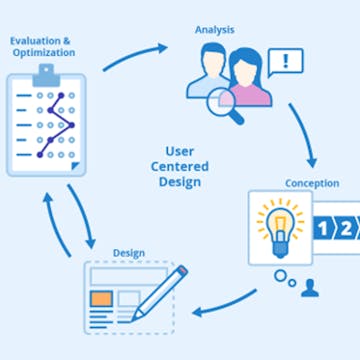User Experience Research
luminating the Path: A Comprehensive Guide to User Experience Research
User Experience (UX) Research is the systematic investigation of users and their requirements to add context and insight into the design process of products, services, or systems. It employs a variety of methods to uncover problems and opportunities, ultimately aiming to create experiences that are not only functional but also enjoyable and intuitive. Think of it as the crucial first step in understanding who your users are, what they need, and how they interact with the world around them, especially in a digital context. This understanding is paramount for businesses that want to design products people will genuinely want and use.
Working in UX Research can be incredibly engaging. Imagine the satisfaction of pinpointing a user's frustration and then seeing that insight directly lead to a product improvement that benefits thousands, or even millions, of people. There's also an element of detective work involved, piecing together clues from user interviews, surveys, and behavioral data to form a clear picture of the user's world. Furthermore, the field is constantly evolving with new tools and techniques, offering continuous learning and growth opportunities.
What is User Experience Research?
At its core, User Experience (UX) Research is about understanding people. It's the process of gathering insights into users' behaviors, needs, motivations, and pain points through various observation techniques and feedback methodologies. The primary goal is to inform the design and development process with real user data, rather than relying on assumptions or what a design team thinks users need. This ensures that products are not just aesthetically pleasing but are also useful, usable, and accessible.
UX Research plays a vital role throughout the entire product development lifecycle. In the early stages, it helps define the problem and identify user needs. During development, it guides design decisions and helps to create prototypes. Even after a product is launched, UX Research continues to gather feedback for improvements and future iterations, ensuring the product remains relevant and effective. Ultimately, effective UX research leads to higher user satisfaction, increased adoption, and better business outcomes.
Explain Like I'm 5: UX Research
Imagine you want to build the best treehouse ever for your friends. Before you even start hammering nails, you'd want to know what your friends like, right? That's kind of what UX Researchers do, but for things like websites, apps, or even physical products.
So, a UX Researcher would "talk" to the people who will use the treehouse (or website or app). They might ask questions like, "What's your favorite thing to do in a treehouse?" or "What makes a treehouse hard to play in?" They might also watch how kids play in other treehouses to see what's fun and what's tricky. This is like doing user interviews or observations.
Then, they take all those ideas and observations and figure out what would make the *very best* treehouse for *those specific friends*. Maybe they discover that everyone wants a super-fast slide, but nobody cares about having a wobbly rope ladder. That information helps the builders (or designers) create a treehouse that everyone will love and find easy to use. They help make sure the final product is awesome and not frustrating!
Core Principles of User Experience Research
Understanding the foundational principles of UX Research is essential for anyone looking to delve into this field. These principles guide how researchers approach their work, ensuring that the insights gathered are meaningful and lead to truly user-centered outcomes.
User-Centered Design Principles
The cornerstone of UX Research is user-centered design (UCD). This philosophy places the user at the heart of every design decision. It means actively involving users throughout the design and development process, from initial concept to final product. The primary aim is to create products that are not only functional but also intuitive, efficient, and enjoyable to use from the user's perspective. This involves a deep empathy for users, understanding their contexts, needs, and limitations.
Effective UCD relies on iterative feedback. This means designs are continuously tested with users, and the insights gained are fed back into the design process for refinement. It's a cycle of designing, testing, and learning, all focused on improving the user experience.
To build a solid foundation in understanding how to design with the user in mind, consider exploring introductory courses. These resources can help you grasp the fundamental concepts of putting users first.
For those who prefer to learn through reading, these books offer valuable perspectives on user-centered design.
Ethnographic and Behavioral Analysis
Ethnographic research in UX involves observing users in their natural environments to understand their behaviors, routines, and the context in which they would use a product or service. This method provides rich, qualitative insights that might not be apparent through surveys or interviews conducted in a lab setting. Imagine trying to understand how a chef uses a new kitchen gadget; observing them in their busy kitchen during service will reveal far more than asking them about it in a quiet room.
Behavioral analysis focuses on what users do, rather than just what they say. This can involve analyzing website click patterns, observing task completion, or tracking eye movements. By focusing on actual behavior, researchers can uncover usability issues and preferences that users themselves may not be able to articulate. Both ethnographic and behavioral analysis help to build a deep, empathetic understanding of the user.
The following course can provide a deeper dive into observing and understanding user behaviors.
Accessibility and Inclusivity Standards
A critical principle in modern UX Research is designing for accessibility and inclusivity. This means ensuring that products and services can be used by people with a wide range of abilities and disabilities. This includes considering users with visual, auditory, motor, or cognitive impairments. Adhering to accessibility standards, such as the Web Content Accessibility Guidelines (WCAG), is not just a matter of compliance but a fundamental aspect of good design.
Inclusivity goes beyond accessibility to encompass designing for a diverse range of users, considering factors like age, cultural background, language, and digital literacy. The goal is to create experiences that are welcoming and usable for everyone, avoiding biases and assumptions that might exclude certain groups. This often requires researchers to actively seek out and engage with underrepresented user groups.
This course offers insights into designing experiences that cater to a broad audience.
Data-Driven Decision-Making
While empathy and qualitative insights are crucial, UX Research also heavily relies on data to inform design decisions. This involves collecting and analyzing both qualitative data (like interview transcripts and observation notes) and quantitative data (like survey results, A/B test statistics, and website analytics). The aim is to base design choices on evidence rather than assumptions or personal preferences.
Data-driven decision-making helps teams prioritize features, identify the most significant usability issues, and measure the impact of design changes. It brings a level of objectivity to the design process and helps to justify design choices to stakeholders. Researchers need skills in data analysis to interpret findings accurately and translate them into actionable recommendations.
Courses that focus on data analysis and its application in UX can be very beneficial.
These books delve into the practicalities of using data in UX research.
Methodologies in User Experience Research
UX Researchers employ a diverse toolkit of methodologies to gather insights. The choice of method depends on the research questions, the stage of product development, available resources, and the type of data needed. Understanding these methods is key to conducting effective research.
Qualitative vs. Quantitative Methods
UX research methods can be broadly categorized into qualitative and quantitative approaches. Qualitative research focuses on understanding the 'why' behind user behavior, exploring their motivations, opinions, and experiences in depth. Common qualitative methods include user interviews, focus groups, ethnographic studies, and open-ended survey questions. This type of research typically involves smaller sample sizes but yields rich, descriptive data.
Quantitative research, on the other hand, focuses on numerical data and statistical analysis to understand 'how many' or 'how much'. Methods like A/B testing, surveys with closed-ended questions, website analytics, and measuring task success rates fall under this category. Quantitative research often involves larger sample sizes and provides data that can be generalized to a broader user population. Many UX researchers advocate for a mixed-methods approach, combining qualitative and quantitative techniques to gain a more comprehensive understanding.
These courses can help you differentiate and apply these core research approaches.
This book provides a foundational understanding of research practices.
Usability Testing and Heuristic Evaluation
Usability testing is a core UX research method where real users are observed attempting to complete tasks with a product or prototype. The goal is to identify any pain points, areas of confusion, or inefficiencies in the user interface. Researchers typically look for task completion rates, time on task, error rates, and user satisfaction. Usability testing can be conducted at various stages of development, from early paper prototypes to fully functional products.
A heuristic evaluation is an inspection method where usability experts review a product's interface against a set of established usability principles (heuristics). This method can quickly identify potential usability problems without directly involving users, making it a cost-effective way to find common issues. While it doesn't replace user testing, it can be a valuable complementary technique, especially in the early stages of design or when resources for user testing are limited.
The following resources offer practical guidance on conducting usability tests and evaluations.
Surveys, Interviews, and Focus Groups
Surveys are a versatile method for collecting data from a large number of users relatively quickly. They can be used to gather quantitative data (e.g., ratings, multiple-choice answers) or qualitative data (e.g., open-ended responses). Well-designed surveys can provide insights into user demographics, preferences, attitudes, and satisfaction levels. Crafting clear, unbiased questions is crucial for obtaining meaningful survey data.
User interviews are one-on-one conversations with users designed to elicit detailed information about their experiences, needs, and motivations. They are a powerful qualitative method for gaining deep insights and understanding the context behind user behavior. Skilled interviewers create a comfortable environment for participants to share openly and honestly.
Focus groups bring together a small group of users (typically 6-10) to discuss specific topics related to a product or service, guided by a moderator. This method can uncover a range of opinions and perspectives, and the group dynamic can sometimes spark insights that individual interviews might not. However, focus groups require careful moderation to prevent a few dominant voices from overshadowing others.
These courses offer practical skills in conducting these common research activities.
A/B Testing and Analytics
A/B testing (also known as split testing) is a quantitative method used to compare two versions of a design (e.g., a webpage, an email, an app screen) to see which one performs better in achieving a specific goal (e.g., higher click-through rate, more sign-ups). Users are randomly shown either version A or version B, and their behavior is tracked. Statistical analysis is then used to determine if there's a significant difference in performance.
Analytics involves collecting and analyzing data about user interactions with a live product, often through platforms like Google Analytics. This can include metrics like page views, bounce rates, conversion rates, and user flow through a website or app. Analyzing this data helps researchers understand how users are actually engaging with the product, identify areas where users might be struggling, and track the impact of design changes over time.
Understanding how to leverage data and analytics is crucial for modern UX research. These topics are closely related to User Experience Research.
Tools and Technologies
UX Researchers rely on a variety of tools and technologies to conduct their work efficiently and effectively. These tools can assist with everything from planning research and recruiting participants to collecting data, analyzing findings, and presenting insights. Familiarity with common UX research tools is often a valuable asset in the field.
Prototyping Tools
Prototyping tools allow designers and researchers to create interactive mockups of websites, apps, or other digital products. These prototypes can range from low-fidelity wireframes (basic sketches of the layout) to high-fidelity, visually polished mockups that closely resemble the final product. Tools like Figma and Sketch are popular choices for creating and sharing prototypes.
For UX Researchers, prototypes are invaluable for usability testing. Testing with prototypes allows teams to gather user feedback early in the design process, before significant development resources have been invested. This iterative testing and refinement based on user interaction with prototypes is a hallmark of effective user-centered design. These tools often include features for creating interactive elements, user flows, and even animations to simulate the user experience.
Learning to use these design and prototyping tools can be highly beneficial for aspiring UX Researchers.
Analytics Platforms
Analytics platforms, such as Google Analytics and Hotjar, provide quantitative data about how users interact with live websites and applications. Google Analytics tracks a wide range of metrics, including page views, session duration, user demographics, and conversion rates. This data helps researchers understand user behavior at scale and identify trends or patterns.
Tools like Hotjar offer features like heatmaps (visual representations of where users click, move, and scroll on a page), session recordings (videos of actual user sessions), and on-page feedback polls. These tools provide a more visual and qualitative layer on top of traditional analytics, helping researchers understand the "why" behind the numbers. Analyzing data from these platforms is crucial for identifying areas for improvement and measuring the impact of design changes.
Consider this related topic to deepen your understanding of analytics in UX.
Remote Testing Software
With the rise of distributed teams and the need to reach diverse user populations, remote testing software has become indispensable. These platforms allow researchers to conduct usability tests, interviews, and surveys with participants located anywhere in the world. Tools like UserTesting, Lookback, and Maze facilitate various remote research activities.
Remote testing software often includes features for screen recording, audio/video capture, task management, and participant recruitment. Some platforms offer unmoderated testing, where participants complete tasks independently at their own pace, while others support moderated sessions where a researcher can interact with the participant in real-time. These tools have made it easier and more cost-effective to gather user feedback from a global audience.
These books discuss methods that are often facilitated by remote testing software.
AI and Machine Learning Applications
Artificial Intelligence (AI) and Machine Learning (ML) are increasingly finding applications in UX Research. AI-powered tools can assist with tasks like analyzing large volumes of qualitative data (e.g., transcribing interviews, identifying themes in open-ended survey responses), personalizing user experiences, and even generating design recommendations.
Machine learning algorithms can analyze vast datasets of user behavior to identify patterns and predict future trends, offering insights that might be difficult for human researchers to uncover. For instance, ML can help in segmenting users based on their behavior or in identifying anomalies that could indicate usability issues. While AI and ML are powerful aids, they are generally seen as tools to augment, not replace, the critical thinking and empathetic understanding of human researchers. The ethical implications of using AI in research, particularly concerning data privacy and bias, are also important considerations.
For those interested in the intersection of AI and user experience, this topic provides further exploration.
You may also be interested in careers that bridge design and advanced technologies.
Educational Pathways
Embarking on a career in User Experience Research can be approached through various educational avenues. While there isn't one single prescribed path, certain fields of study and qualifications can provide a strong foundation. Remember, practical experience and a compelling portfolio are often as important, if not more so, than formal qualifications alone.
Degrees in HCI, Psychology, or Design
A bachelor's or master's degree in fields like Human-Computer Interaction (HCI), Psychology, Sociology, Anthropology, Cognitive Science, or Design can be highly relevant for a career in UX Research. HCI programs often provide a direct pathway, covering research methodologies, usability principles, and interaction design. Psychology and other social science degrees equip individuals with a strong understanding of human behavior, research methods, and data analysis – all crucial skills for a UX Researcher.
Design degrees, particularly those focused on interaction design, user-centered design, or graphic design, can also be a good starting point, especially if complemented with research-focused coursework or projects. These programs develop an understanding of the design process and visual communication, which are valuable in collaborating with design teams. Regardless of the specific degree, look for programs that offer courses in research methods, statistics, and opportunities for hands-on project work.
These courses can provide foundational knowledge often covered in degree programs.
Consider exploring these foundational topics relevant to many UX research degree programs.
Certifications and Workshops
For individuals looking to transition into UX Research or supplement their existing education, certifications and workshops can be valuable. Several organizations and educational platforms offer specialized programs in UX Research, covering specific methodologies, tools, and best practices. These can range from short, intensive bootcamps to more comprehensive certification programs.
When choosing a certification or workshop, consider the curriculum, the instructors' experience, and whether the program offers opportunities for practical application and portfolio-building. Organizations like the Nielsen Norman Group and the Interaction Design Foundation offer well-regarded courses and certifications. Workshops can be particularly useful for learning specific skills, such as how to conduct effective user interviews or moderate usability tests.
Many online platforms provide courses that can lead to certificates, offering a flexible way to gain specific skills.
This topic refers to a specific certification that may be of interest.
PhD Research Opportunities
For those deeply passionate about advancing the field of UX Research and contributing to academic knowledge, pursuing a PhD can be a rewarding path. Doctoral programs in HCI, Information Science, Psychology, or related fields often involve conducting in-depth research on specific aspects of user experience, developing new methodologies, or exploring the theoretical underpinnings of the field.
A PhD can open doors to academic positions, as well as leadership roles in industry research teams, particularly in organizations that conduct cutting-edge or foundational research. The rigorous training in research design, data analysis, and scholarly communication provided by a PhD program can be highly valuable. However, a PhD is a significant time commitment and is not a prerequisite for most UX Research roles in industry.
Interdisciplinary Skill Integration
User Experience Research is inherently interdisciplinary, drawing on knowledge and skills from various fields. Successful UX Researchers often possess a blend of analytical skills, communication abilities, empathy, and a good understanding of design principles. The ability to integrate skills from different domains is a key strength.
For example, someone with a background in journalism might excel at conducting interviews and storytelling with data. An individual from a market research background might bring strong survey design and quantitative analysis skills. Even fields seemingly unrelated, like library science or anthropology, can offer transferable skills in understanding information organization, user behavior, and cultural contexts. The key is to identify how your existing skills can be applied to UX Research and to proactively fill any gaps through learning and practice.
These courses emphasize the blend of design and research skills.
Online Learning and Self-Study
The digital age offers unprecedented access to learning resources, making online learning and self-study viable paths for acquiring UX Research skills. Whether you're looking to build a foundational understanding, upskill, or specialize in a particular area, a wealth of online courses, communities, and project opportunities are available.
Online courses provide a structured way to learn UX Research concepts and methodologies at your own pace. OpenCourser is an excellent resource for finding such courses, allowing you to explore a wide array of options in design and research from various providers. You can compare course content, instructor credentials, and reviews to find the best fit for your learning style and goals. The "Save to list" feature on OpenCourser can help you curate a personalized learning path by shortlisting courses you're interested in, making it easier to manage your self-study journey.
MOOCs and Specialized Courses
Massive Open Online Courses (MOOCs) and other specialized online courses offer flexible and often affordable ways to learn about UX Research. Platforms like Coursera, edX, and Udemy host a wide range of courses, from introductory overviews to deep dives into specific research methods or tools. Many of these courses are developed by universities or industry experts, providing credible and up-to-date content.
When selecting online courses, look for those that include practical exercises, case studies, and opportunities to apply what you've learned. Some courses may also offer certificates upon completion, which can be a valuable addition to your resume. The key is to be an active learner – engage with the material, participate in discussions if available, and think critically about how the concepts apply to real-world scenarios.
These online courses are designed to provide comprehensive learning experiences in UX research and design.
Building a Portfolio Through Personal Projects
For aspiring UX Researchers, especially those who are self-taught or transitioning from other fields, a strong portfolio is essential. Personal projects offer an excellent opportunity to apply your research skills and showcase your abilities to potential employers. These projects don't need to be for paying clients; they can be self-initiated explorations of problems you're passionate about solving.
Consider redesigning an existing website or app, identifying usability issues through your own research, and proposing evidence-based solutions. You could also conduct a research study on a topic that interests you, such as how people use a particular type of technology or navigate a specific service. Document your entire process, from defining research questions and choosing methodologies to analyzing data and presenting your findings. Clearly articulate the 'why' behind your decisions and the impact of your research. Platforms like OpenCourser's list management can even help you organize and share collections of resources or projects that have informed your work.
This course focuses on a capstone project, which is great for portfolio building.
This book can guide you on how to approach UX work, especially if you're working independently on projects.
Community Engagement (Forums, Webinars)
Engaging with the UX Research community is a valuable way to learn, network, and stay updated on the latest trends and best practices. Online forums, LinkedIn groups, Slack channels, and subreddits dedicated to UX Research provide platforms for asking questions, sharing knowledge, and connecting with peers and mentors.
Webinars, online conferences, and virtual meetups hosted by industry organizations or thought leaders offer opportunities to learn from experts and hear about new tools and techniques. Many of these events are free or low-cost. Actively participating in these communities can provide support, inspiration, and even potential job leads. Don't be afraid to contribute to discussions and share your own learning journey.
Exploring topics like these can help you understand different facets of the user experience community and its focus areas.
Bridging Gaps in Formal Education
Online learning and self-study can be particularly effective for bridging any gaps in your formal education. If your degree didn't cover specific UX research methods, or if you need to learn a particular software tool, online courses can provide targeted learning. If you lack practical research experience, personal projects and volunteer opportunities can help build those skills.
The key is to be strategic about your learning. Identify the skills and knowledge areas where you need to improve, and then seek out resources that address those specific needs. Creating a structured learning plan for yourself, perhaps using tools like OpenCourser's Learner's Guide for tips on self-discipline and curriculum creation, can help you stay on track. Remember that continuous learning is a hallmark of a successful UX Researcher, as the field is constantly evolving.
This course is designed to help learners design a project for social good, offering a way to gain practical experience while addressing real-world issues.
Career Progression and Opportunities
A career in User Experience Research offers a variety of growth paths and opportunities across numerous industries. As companies increasingly recognize the value of understanding their users, the demand for skilled UX Researchers continues to grow. The journey often begins with entry-level roles and can progress to leadership positions or specialized consulting work.
Navigating this career path involves not only honing your research skills but also developing strong communication, collaboration, and problem-solving abilities. Building a robust portfolio and networking within the industry are also key components of career advancement. For those considering this field, it's encouraging to know that the skills are transferable, and the impact you can make is significant.
Entry-Level Roles (e.g., UX Research Assistant)
Entry-level positions in UX Research often have titles like UX Research Assistant, Junior UX Researcher, or Associate UX Researcher. In these roles, individuals typically support senior researchers in various aspects of the research process. This might include assisting with participant recruitment, preparing research materials, taking notes during sessions, helping with data organization, and contributing to reports.
These roles provide invaluable hands-on experience and mentorship. Employers will look for a foundational understanding of research methods, strong organizational skills, attention to detail, and a genuine curiosity about user behavior. A portfolio demonstrating academic projects, personal projects, or internship work can be very beneficial. This stage is about learning the ropes, refining your skills, and understanding how research operates within a professional setting. It’s a time of growth and absorption, laying the groundwork for future advancement.
These courses are excellent starting points for those looking to enter the field.
Consider these careers if you're starting out and want to understand the landscape.
Mid-Career Paths (e.g., Senior UX Researcher)
As UX Researchers gain experience (typically 3-5 years or more), they can progress to mid-career roles such as UX Researcher or Senior UX Researcher. At this stage, individuals are expected to independently plan and execute research studies, analyze complex data, and translate findings into actionable insights that drive design and product strategy. They often take lead on projects and may mentor junior team members.
Stronger analytical skills, proficiency in a wider range of research methodologies, and excellent communication and presentation skills are crucial at this level. Senior UX Researchers are often responsible for defining research roadmaps, managing project timelines and budgets, and effectively communicating research findings to diverse stakeholders, including product managers, designers, engineers, and executives. They play a key role in championing a user-centered approach within their organizations.
For those looking to advance to or excel in mid-career roles, these more in-depth courses can be beneficial.
This career path is a common goal for many in the field.
Leadership Roles (e.g., UX Research Manager)
With significant experience and a proven track record, UX Researchers can move into leadership positions such as UX Research Manager, Head of UX Research, or Director of User Experience. In these roles, the focus shifts from conducting individual research projects to building and managing research teams, defining the overall research strategy for the organization, and ensuring that research insights have a broad impact on product and business decisions.
Leadership roles require strong people management skills, strategic thinking, the ability to advocate for research at an executive level, and experience in establishing research operations (ResearchOps). This includes processes for recruitment, data management, knowledge sharing, and ethical oversight. Leaders in UX Research play a critical role in fostering a culture of user-centeredness throughout the organization and demonstrating the return on investment of research activities.
If you are aiming for leadership, understanding how to manage teams and projects is crucial. This book may offer relevant insights.
These careers represent leadership and specialized senior roles in the UX field.
Freelancing and Consultancy
Experienced UX Researchers also have the option to work as freelancers or consultants. This path offers flexibility and the opportunity to work with a variety of clients across different industries. Freelancers might take on specific research projects, such as conducting a series of usability tests or developing user personas for a new product.
Consultants often provide more strategic advice, helping organizations establish their own research practices, train their teams, or tackle complex user experience challenges. Success in freelancing and consultancy requires not only strong research skills but also business development acumen, project management capabilities, and the ability to build strong client relationships. A solid portfolio and a strong professional network are particularly important for those pursuing this path.
This book is invaluable for those working as a "team of one," which is often the case in freelance or new consultancy roles.
This career path reflects the independent nature of consulting.
Ethical Challenges in User Experience Research
User Experience Research, by its very nature, involves working closely with people and their personal information. This brings a host of ethical responsibilities that researchers must navigate carefully. Upholding ethical principles is not just about legal compliance; it's fundamental to building trust with participants, ensuring the integrity of research findings, and ultimately, creating products that genuinely benefit users without causing harm.
Privacy and Data Security
Protecting participant privacy and ensuring data security are paramount in UX Research. Researchers often collect sensitive information, including personal details, opinions, and observations of behavior. It is crucial to be transparent with participants about what data is being collected, how it will be used, stored, and protected.
Researchers must obtain informed consent before collecting any data, clearly explaining the purpose of the research and how the participant's information will be handled. Data should be anonymized or de-identified whenever possible to protect participant identities. Secure data storage and access protocols are essential to prevent unauthorized access or breaches. Adherence to data privacy regulations like GDPR (General Data Protection Regulation) or CCPA (California Consumer Privacy Act) is a legal and ethical obligation. According to a report by Pew Research Center, public concern over data privacy remains high, underscoring the importance of these practices.
Bias Mitigation in Research Design
Bias can creep into research at various stages, from participant recruitment and question wording to data analysis and interpretation, potentially skewing findings and leading to flawed design decisions. Researchers have an ethical responsibility to be aware of potential sources of bias and take active steps to mitigate them.
This includes ensuring diverse and representative participant samples, crafting neutral and open-ended questions, and being mindful of one's own assumptions and preconceptions during data analysis. Techniques like triangulation (using multiple data sources or methods) and peer debriefing (discussing findings with colleagues) can help to identify and challenge potential biases. Striving for objectivity and acknowledging limitations are key to producing credible and ethical research.
Informed Consent and Transparency
Informed consent is a cornerstone of ethical research. This means that participants must be fully informed about the research—its purpose, procedures, potential risks and benefits, how their data will be used, and their right to withdraw at any time—before they agree to participate. This information should be provided in clear, understandable language, avoiding jargon.
Transparency extends beyond the consent process. Researchers should be honest and clear in all their communications with participants. Deception should be avoided unless absolutely necessary for the research aims and ethically justified, and even then, participants should be debriefed afterward. Building a relationship of trust and respect with participants is essential for ethical and effective research.
This book offers insights into the practical aspects of conducting research, which inherently involves ethical considerations.
Global Regulatory Compliance
In an increasingly interconnected world, UX Researchers often work on products and services with a global user base. This necessitates an understanding of and compliance with various international and regional data privacy and protection regulations. As mentioned, GDPR in Europe and CCPA in California are prominent examples, but many other countries and regions have their own specific laws.
Researchers working on global projects need to be aware of the legal requirements in all relevant jurisdictions concerning data collection, processing, storage, and transfer. This may involve consulting with legal experts to ensure full compliance. Ethical research practices often go hand-in-hand with these legal requirements, emphasizing principles like data minimization, purpose limitation, and accountability.
Understanding the broader context of user experience can also inform ethical approaches.
Industry Trends and Future Outlook
The field of User Experience Research is dynamic and continually evolving, shaped by technological advancements, changing user expectations, and new business priorities. Staying abreast of industry trends is crucial for UX Researchers to remain effective and relevant. The future outlook for UX Research appears bright, with a growing recognition of its value in creating successful products and services.
AI-Driven UX Research Tools
Artificial intelligence (AI) is poised to significantly impact UX Research. AI-powered tools are emerging that can automate or augment various research tasks. For example, AI can assist in analyzing large volumes of qualitative data, such as interview transcripts or open-ended survey responses, by identifying themes and sentiment more quickly than manual methods. AI can also help in recruiting participants by matching specific demographic or behavioral profiles.
Furthermore, AI can personalize user testing experiences or even generate A/B testing variations. While these tools offer exciting possibilities for efficiency and scale, it's important to approach them with a critical eye. Ensuring the ethical use of AI, addressing potential biases in algorithms, and remembering that AI is a tool to support, not replace, human insight and empathy will be key. The World Economic Forum frequently discusses the impact of AI on various industries, and its implications for research are an important part of this conversation.
Remote and Hybrid Research Methods
The shift towards remote work and distributed teams has accelerated the adoption of remote and hybrid research methods, and this trend is likely to continue. Tools and platforms that facilitate remote usability testing, virtual interviews, online surveys, and digital ethnography have become essential. These methods offer benefits such as access to a more geographically diverse participant pool and potentially lower costs.
Hybrid approaches, which combine remote and in-person research activities, are also gaining traction. For example, initial exploratory interviews might be conducted remotely, followed by in-person contextual inquiries for deeper insights. Researchers will need to be adept at choosing the right blend of methods based on project needs and effectively managing the logistical and technological aspects of remote and hybrid research.
This book, while foundational, discusses principles applicable to various research settings, including remote ones.
Sustainability in Design
There's a growing awareness within the design community, including UX, about the importance of sustainability. This encompasses not only environmental sustainability (e.g., designing digital products that are energy-efficient or promote sustainable behaviors) but also social and economic sustainability (e.g., creating ethical and equitable products, designing for long-term usability and maintainability).
UX Researchers can contribute to sustainability by investigating user behaviors and motivations related to sustainable practices, helping to design interventions that encourage more responsible consumption, or evaluating the long-term impact of products on users and society. This trend reflects a broader movement towards more responsible and ethical technology design.
Exploring sustainability topics on OpenCourser can provide more context on this growing area of focus.
Global Market Demand Analysis
The demand for UX Researchers continues to be strong globally. As businesses across all sectors undergo digital transformation and recognize the competitive advantage of excellent user experience, the need for professionals who can provide deep user insights is increasing. This demand is not limited to traditional tech hubs; industries like healthcare, finance, education, and government are also actively hiring UX Researchers.
Market analysis indicates a growing need for researchers with a diverse skill set, including strong analytical abilities, expertise in mixed methods, and the ability to translate research findings into strategic business recommendations. Job market platforms and industry reports, such as those that might be found on sites like U.S. Bureau of Labor Statistics Occupational Outlook Handbook (though not specific to UX research, it provides broader job market trends), can offer insights into employment projections and salary expectations in related fields. Individuals entering the field or looking to advance can expect a dynamic and evolving job market with diverse opportunities.
These careers reflect the varied opportunities available in the UX research landscape.
Frequently Asked Questions (Career Focus)
Embarking on or transitioning into a User Experience Research career often comes with many questions. This section aims to address some of the common queries job seekers and career planners might have, offering concise and actionable answers to help demystify the path ahead.
What skills are essential for entry-level UX researchers?
For entry-level UX researchers, a blend of foundational research skills, soft skills, and a willingness to learn is key. Essential skills include a basic understanding of qualitative and quantitative research methods (like usability testing, interviews, and surveys), and some familiarity with data gathering and organization. Strong observational skills and attention to detail are also important.
Soft skills are equally critical: empathy (to understand user perspectives), good communication (both written and verbal for interacting with participants and teams), active listening, and curiosity are highly valued. Basic familiarity with design principles and some collaboration tools can also be beneficial. Perhaps most importantly, a proactive learning attitude and a passion for understanding people will serve you well.
These courses can help build some of the fundamental skills needed.
How does UX research differ across industries?
While the core principles and methodologies of UX research remain consistent, their application can vary significantly across industries. For example, in healthcare, research might focus heavily on patient safety, accessibility for individuals with diverse health conditions, and navigating complex medical information. [sl6vwm] Ethical considerations, particularly around patient privacy (HIPAA in the U.S.), are paramount.
In e-commerce, research might prioritize conversion optimization, understanding shopping behaviors, and streamlining the checkout process. [kp1p1o] The financial services industry often involves research around trust, security, and making complex financial products understandable. In the gaming industry, UX research looks at player engagement, intuitiveness of controls, and overall enjoyment. [ijnr89] Understanding the specific context, user base, and regulatory landscape of the industry you're working in is crucial for effective UX research.
Can I transition into UX research from a non-design background?
Absolutely! Many successful UX Researchers come from diverse, non-design backgrounds such as psychology, anthropology, market research, journalism, library science, education, and customer service. The skills developed in these fields are often highly transferable to UX Research. For example, psychologists understand human behavior and research methods, while journalists excel at interviewing and storytelling.
The key to a successful transition is to identify your transferable skills, proactively learn UX-specific methodologies and terminology (often through online courses, bootcamps, or self-study), and gain practical experience through personal projects, volunteer work, or internships. Highlighting how your unique background brings a valuable perspective to understanding users can be a significant advantage. Networking with UX professionals can also provide guidance and opportunities.
If you're considering a transition, this career is often a target for those moving into UX research.
What is the role of a portfolio in job applications?
A portfolio is critically important in UX Research job applications, especially for entry-level and mid-career roles. It's your primary tool for showcasing your research skills, process, and the impact of your work. Your portfolio should go beyond just presenting final deliverables; it should tell the story of your research projects.
For each project, clearly outline the research problem, the methods you chose (and why), your role in the project, the data you collected, your analysis process, the key insights you uncovered, and the recommendations you made. If possible, describe the impact your research had on the product or design. Include examples of research artifacts like research plans, interview scripts, personas, journey maps, usability test reports, and presentations. A well-crafted portfolio demonstrates not only your technical skills but also your thinking process and ability to communicate research effectively.
This topic is directly related to an important deliverable often included in portfolios.
How is the UX research job market evolving?
The UX research job market is continually evolving and generally shows strong growth. Companies are increasingly recognizing that understanding user needs is critical for business success, leading to a higher demand for skilled researchers. There's a growing need for researchers who can not only execute research studies but also think strategically and communicate insights effectively to influence product and business decisions.
Specializations are also emerging, such as researchers focusing on quantitative data, AI ethics in UX, or specific domains like healthcare or finance. The rise of remote work has also broadened opportunities, allowing researchers to work for companies located anywhere. Staying updated on new tools, methodologies, and industry trends through continuous learning is important for navigating this evolving market successfully.
What salary expectations are realistic for UX researchers?
Salary expectations for UX Researchers can vary significantly based on factors such as geographic location, years of experience, level of education, company size and type, and the specific industry. Generally, UX Research is a well-compensated field, reflecting the demand for these specialized skills.
Entry-level positions will naturally have lower salaries than senior or lead researcher roles. According to Glassdoor data cited by Springboard, entry-level UX researchers might earn around $108,009 annually, with mid-level researchers earning approximately $124,732, and senior-level researchers potentially earning $152,764 or even higher. Websites like Glassdoor, Salary.com, and Payscale can provide more specific salary data based on your location and experience level. It's always a good idea to research salary benchmarks in your specific region and for the types of roles you are targeting.
Further Exploration in User Experience
The world of User Experience is vast and interconnected. Beyond research, several related disciplines contribute to creating compelling and effective user interactions. Exploring these areas can provide a richer understanding of the overall UX landscape and reveal alternative or complementary career paths.
Related Careers
If User Experience Research piques your interest, you might also find related careers in the broader UX and design fields appealing. These roles often work closely with UX Researchers and share a common goal of creating better user experiences.
Consider exploring roles such as:
Each of these roles emphasizes different aspects of the user experience, from visual design and information architecture to the textual content that guides users. Understanding these adjacent roles can also make you a more effective collaborator as a UX Researcher.
Related Topics
To deepen your understanding of User Experience Research, it's helpful to explore related topics that form the ecosystem of creating user-centered products and services. These topics often overlap with and inform UX research practices.
You may wish to look into the following areas:
Delving into these topics can provide a more holistic view of how user research fits into the broader goal of designing and delivering exceptional user experiences across various platforms and contexts. OpenCourser offers a wealth of resources to browse these and other related fields of study.
Concluding Thoughts
User Experience Research is a fascinating and impactful field dedicated to understanding and advocating for the user. It's a discipline that blends analytical rigor with empathetic inquiry, offering a rewarding career for those passionate about making technology more human-centered. The journey into UX Research can take many forms, from formal academic programs to dedicated online learning and self-study. Regardless of the path chosen, the development of a strong skill set, a compelling portfolio, and a commitment to continuous learning are paramount.
The demand for skilled UX Researchers is robust and growing, presenting ample opportunities across diverse industries. While the path requires dedication and a genuine interest in human behavior, the ability to shape products and services that truly meet user needs is a powerful motivator. If you are drawn to understanding the 'why' behind user actions and are eager to translate those insights into better experiences, a career in User Experience Research may be an excellent fit for your aspirations. We encourage you to continue exploring the resources available, build your knowledge, and connect with the vibrant community of UX professionals. Your journey into this dynamic field has the potential to make a real difference in how people interact with the world around them.

































